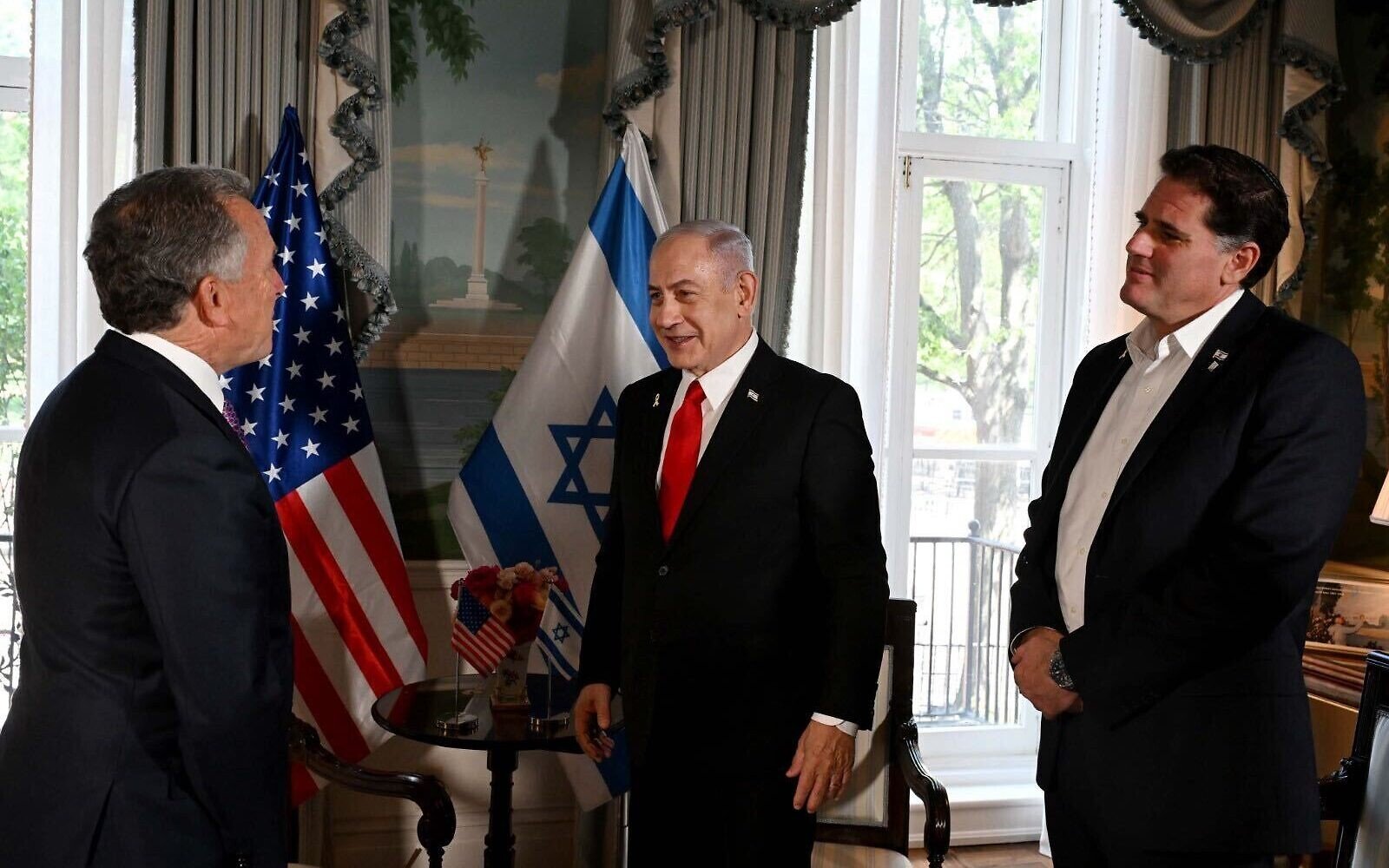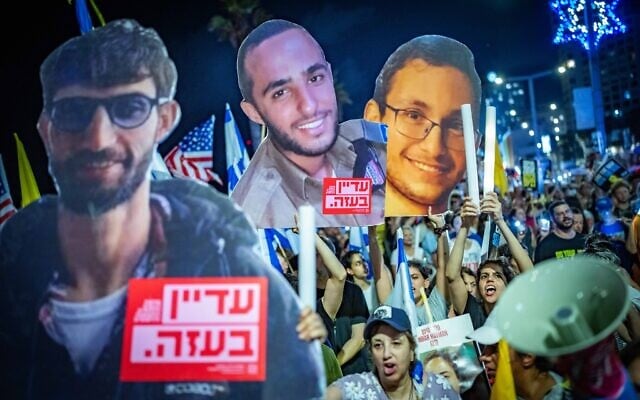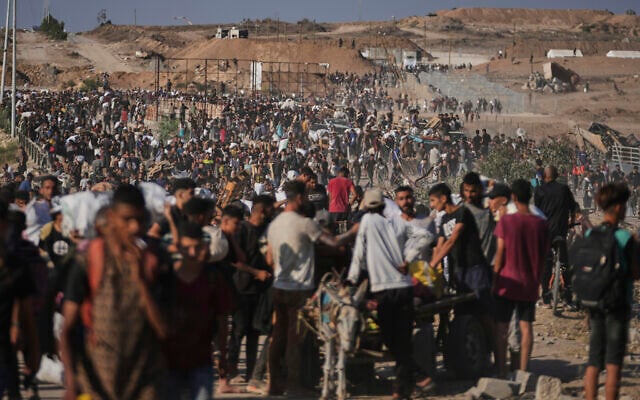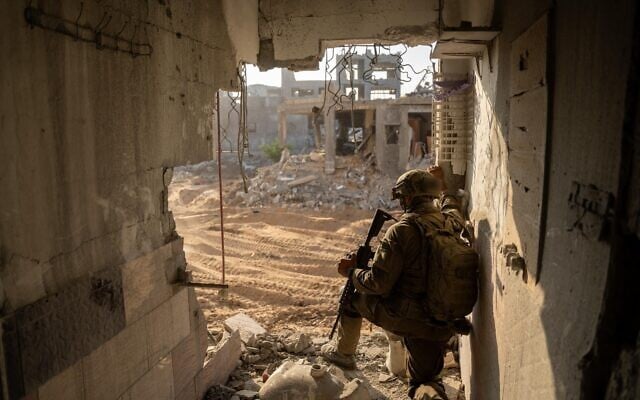



Israel has received Hamas’s latest response to a proposed ceasefire and hostage release deal, the Prime Minister’s Office confirmed on Thursday morning, adding that it was reviewing the response in full.
The updated Hamas response is “workable,” an Israeli source told The Times of Israel.
Bishara Bahbah, a Palestinian-American businessman who campaigned for US President Donald Trump during last year’s election, took to social media on Thursday to welcome Hamas’s response, a day after criticizing the group for its conduct in talks.
“Hamas this morning gave its response to the Israeli proposal on the subject of redeployment and a prisoner exchange,” he wrote on Facebook. “Hamas’s response has been real and positive. Now Israel must enter into serious and swift negotiations to reach a ceasefire. Everyone is waiting for relief. The people of Gaza have suffered enough killing, destruction, and starvation.”
At the same time, a new deal is far from guaranteed, and a number of hurdles remain.
Channel 12 cited two senior Israeli officials as saying there was “no progress” yet.
“In fact, the situation is one of Hamas hardening positions on most aspects of the negotiations, from the withdrawal lines to the number of hostages and ending with the elimination of American aid,” they said, in reference to the US- and Israeli-backed Gaza Humanitarian Foundation.

Hamas had left mediators exasperated over the past week as days went by without a response to the latest Israeli positions.
Hamas’s initial response, delivered hours before the latest one, had been quickly rejected by Arab mediators, who refused to even share it with the US and Israel and demanded that the terror group present something more reasonable.
“We are really pressuring them,” a diplomat from one of mediating countries told The Times of Israel.
An Israeli official told Channel 12 after an initial review of Hamas’s lengthy response that significant gaps remain and that rapid progress was not likely.
The main disagreements between the two sides revolve around the ratio and identity of Palestinian prisoners to be released from Israeli jails in exchange for hostages, said the official, and the lines of withdrawal for the IDF should a ceasefire be implemented.

Strategic Affairs Minister Ron Dermer, who heads Israel’s hostage negotiating efforts, was expected to meet with US special envoy Steve Witkoff in Italy on Thursday. The two were to be joined by a senior Qatari official involved in the mediation efforts, an official familiar with the negotiations told The Times of Israel.
Negotiators expressed optimism last week regarding the chances for an agreement between Israel and Hamas, after Jerusalem compromised on the deployment of IDF troops in Gaza during a potential 60-day ceasefire.
That hope began to dissipate by the end of the week.

A senior Israeli official on Friday held a rare phone briefing with reporters minutes before the start of the Jewish Sabbath to accuse Hamas of “dragging its feet.”
“Israel is ready to see negotiations with Hamas through to the end, but the refusal and foot-dragging are raising doubts about Hamas’s seriousness,” the Israeli official told reporters.
At the same time, US, Egyptian, and Qatari mediators also expressed growing frustration with Hamas over its delayed response to updated troop withdrawal maps Israel had submitted.

Hamas’s initial response on Tuesday night — the one mediators deemed unacceptable — demanded that IDF troops withdraw further than Israel had agreed, a source involved in the talks told The Times of Israel.
The terror group also submitted amendments regarding guarantees from the mediators to make it harder for Israel to resume the war after the 60-day truce; more clear-cut language ending the operations of the GHF; and demanding that more Palestinian security prisoners be released for each Israeli hostage, an Arab diplomat familiar with the negotiations said on Wednesday.

Bahbah on Wednesday blasted Hamas. “Procrastination has cost the Palestinian people dozens of victims daily,” he wrote on X. “There is no convincing reason for delaying the response or demanding non-essential amendments,” he wrote, adding that Hamas could raise outstanding issues during negotiations set to take place once the 60-day truce begins.
Proximity negotiations have been taking place in Doha since July 6, with the deal on the table envisioning the release of 10 living hostages and the bodies of 18 slain hostages from Gaza in exchange for a yet-to-be-agreed-upon number of Palestinian security prisoners during a 60-day truce.
Once the temporary ceasefire commences, the sides will hold talks on the terms of a permanent ceasefire and the release of the remaining 22 hostages, around 10 of whom are believed to be alive.
Hamas launched a rocket at one of the GHF’s aid distribution sites in the southern Gaza Strip overnight, the military said.
According to the IDF, the rocket was launched from Khan Younis toward the area of the GHF sites in Rafah. The projectile impacted some 250 meters from one of the aid sites, close to the army’s Morag Corridor, it said.
Jacob Magid contributed to this report.
